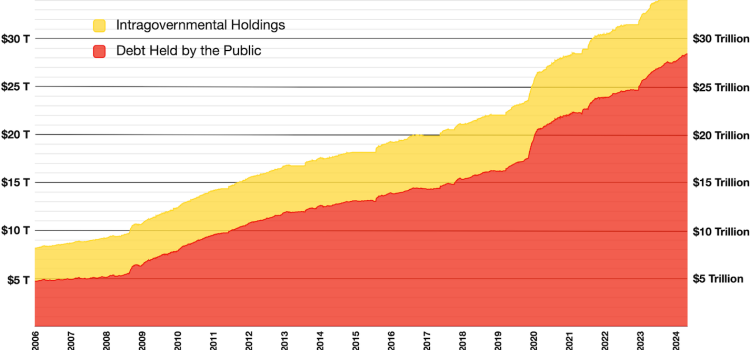What’s driving the massive increase in America’s national debt? How might this unprecedented debt affect your financial future? The growth of the US national debt has become a critical economic issue, with projections showing an alarming rise to 116% of GDP by 2034. From increased government spending and tax cuts to national emergencies and rising healthcare costs, multiple factors are pushing the debt to record levels. Read on to understand the complex web of causes behind this fiscal challenge and explore potential solutions that could shape America’s economic future.
Growth of the US National Debt: Causes, Concerns, & Options










